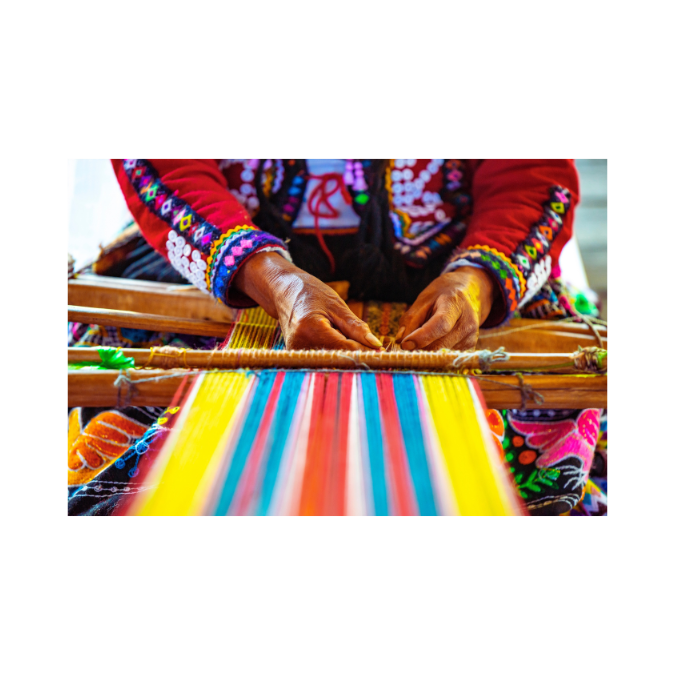Indigenous Culture’s Connection to Sacred Mushrooms
As we come together to celebrate Indigenous People's Day on October 9, 2023, it's a wonderful opportunity to dive into the profound bond that exists between indigenous cultures and an unexpected yet remarkable partner: mushrooms. Within the rich tapestry of indigenous traditions spanning the globe, mushrooms hold a special place. These fungi have played an extraordinary role in the history, spirituality, and daily lives of indigenous communities.
Spiritual Significance:
For countless indigenous cultures, mushrooms aren't just sustenance; they are spiritual messengers and so much more. Among these, psilocybin mushrooms stand out, used in sacred ceremonies to open doors to altered states of consciousness. These journeys offer a way to connect with ancestors, seek wisdom, and find guidance in the realms beyond.
Traditional Medicine:
Indigenous wisdom about mushroom-based medicine is like a treasure chest of ancient healing. Varieties such as reishi, chaga, and turkey tail have been cherished for their remarkable properties. These fungi aren't just remedies; they are allies in maintaining both physical and spiritual well-being, offering relief from ailments, strengthening the immune system, and restoring balance.
Top Left: Chaga, Top Right: Reishi, Bottom: Turkey Tail
Contributions to Modern Medicine:
It's incredible to realize that indigenous medicine practices haven't only preserved ancient wisdom but have also shaped modern medicine. For instance, indigenous North American tribes discovered the pain-relieving properties of willow tree bark, which ultimately led to the creation of aspirin. Similarly, quinine, derived from the bark of the cinchona tree known to indigenous South American communities, became the foundation for malaria treatments. These contributions spotlight the wealth of knowledge held by indigenous people, often unsung and underappreciated.
Left: Willow, Right: Cinchona
Ceremonial Use:
Indigenous communities worldwide have seamlessly woven mushrooms into their sacred ceremonies. The Mazatec people in Mexico, for instance, have a centuries-old tradition of using psilocybin mushrooms to commune with the divine. Similarly, Siberian tribes incorporate fly agaric mushrooms in their shamanic practices, fostering a deep connection with nature's rhythms.
Left: Single Amanita Muscaria, Right: Cluster of Psilocybe Cubensis
Storytelling and Art:
Mushrooms aren't just ingredients; they are inspirations for indigenous storytelling and artistic expression. These fungi grace paintings, carvings, textiles, and oral traditions, symbolize the bridge between the tangible and the spiritual worlds, enriching cultural narratives.
Culinary Traditions:
In indigenous cuisine, mushrooms are more than ingredients; they are cultural treasures. From the Matsutake mushrooms enhancing Japanese Ainu cuisine to the cherished morel mushrooms of the Ojibwe in North America, these fungi infuse traditional dishes with unique flavors and textures, connecting people to their roots.
Morel Mushrooms
Sustainable Harvesting:
The importance of sustainable mushroom harvesting cannot be overstated. Collaborative efforts between indigenous communities, conservation organizations, and governments are essential to ensure the longevity of both cultural traditions and mushroom populations. Sustainable practices are the foundation for maintaining the delicate balance between humanity and nature.
Cultural Preservation:
In an era marked by globalization, colonization, and land encroachment, preserving indigenous cultural practices, including their profound knowledge of mushrooms, becomes a pressing need. These traditions aren't just customs; they are wellsprings of ecological wisdom and identity.
Mushrooms, often seen as humble and ordinary, embody the deep connection between indigenous peoples and the natural world. They encapsulate spiritual, medicinal, and ecological wisdom passed down through generations in practice, stories, and genetics. As we celebrate Indigenous People's Day, let's take some time to honor and respect the cultural heritage and profound knowledge held by these communities. By recognizing the significance of mushrooms in indigenous cultures and acknowledging their vital contributions to modern medicine, we pay homage our shared human history and our enduring relationship with the Earth and nature.










